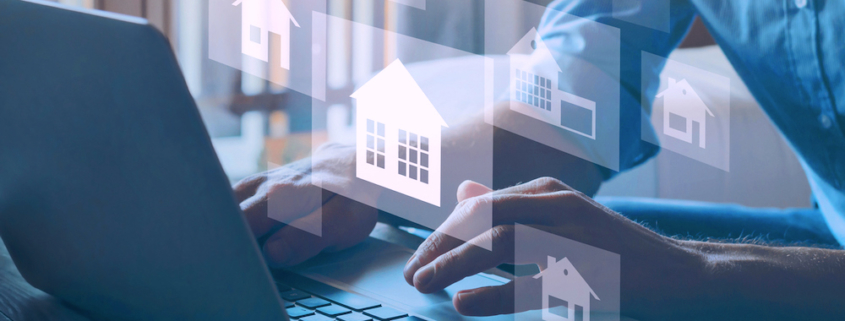Will Mortgage Rates Rise With Inflation and For How Long?
Mortgage rates are starting to fluctuate, and there are a lot of predictions floating around about rising mortgage rates. But the pandemic has taught us that nothing is for sure. Trends that used to be predictable are in question. So how can we know whether or not mortgage rates are going to rise or stay low? And for how long?
The short answer is this: mortgage rates are still the lowest they’ve been in over 50 years, and there’s no historical data to imply that they will continue to drop. Even as they begin to shift, they probably won’t go any lower.
Check out the mortgage rates over the past 50 years. While they might stay low for a bit, it’s more likely that they’ll start to rise again, along with potential inflation.
Mortgage rates and trends: http://www.freddiemac.com/pmms/pmms30.html
History Shows That Mortgage Rates Rise With Inflation
Historically, mortgage rates rise with inflation. Meaning, as inflation rates rise, mortgage rates rise in tandem. Investors watch the trends with caution, and often mortgage rates rise based solely on the anticipation of inflation. This makes sense when you understand that investors and banks don’t want to take unnecessary risks, especially when it comes to mortgages.
Just check out inflation rates since 1972, and you’ll see that they are in sync with mortgage rates. When one rises, the other follows and vice versa.
Inflation rates and trends: https://www.macrotrends.net/countries/USA/united-states/inflation-rate-cpi
The Basics About Inflation and Mortgage Rates
When most of us think of inflation, we think of gas prices going up or the cost of weekly groceries inching higher.
In basic terms, inflation is when prices go up and purchasing power falls. For example, if inflation rates jump up 12%, then it takes $112 to buy something that would have only cost $100.
When earnings climb faster than inflation, your buying power is higher, and your dollar stretches further. When inflation rates start rising, buying power falls. When this happens across the economy, there are far-reaching implications.
That said, even if inflation rates don’t start rising right away, the anticipation of inflation can cause mortgage rates to rise.
This is because mortgages act similar to bonds: when inflation rates rise, purchasing power decreases. When buying power decreases, interest rates go up to keep investors engaged.
Predicting a rise in inflation can drive mortgage rates up by the simple fact that investors are anticipating the rise and want to stay in sync. The Federal Reserve is right there with them.
The Big Question: Is Now the Time to Buy a Home?
In general, mortgage rates almost always rise along with inflation. However, nothing is certain in economic forecasting.
Today, masks are off, and it feels like we’re on the cusp of a post-pandemic recovery. This is hopeful, but it also means the market is unpredictable.
What we know: mortgage rates are still the lowest they’ve been in 50 years.
Sure, rates could move maybe an eighth of a point either way, but the long-term gains on locking in a mortgage at today’s rates still outweigh the risks of waiting.
The only trend from this point is upwards. If inflation begins to rise, then mortgage rates will rise along with it.
Final Takeaway
Buying a home will always be a serious financial decision. Deciding where to buy can be a difficult choice. If you want to become a homeowner, now is still a great time to lock in a secure mortgage. A fixed-rate mortgage can give you stability and peace of mind while the economy finds its settling point.
Mortgage rates will rise with inflation if historical trends are a predictor. Whether it happens slowly or quickly, no one knows. But with today’s low rates and flexible loan programs, it’s a good time to secure your interest rate and buy a home you can afford.
What’s Next
If you’re thinking about buying a home, moving out of state, refinancing, or applying for a home equity loan, let’s talk. Mortgage rates are still low, and inflation might be around the corner. I’d love to work with you and help you reach your homeownership goals.



